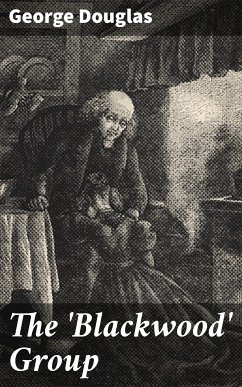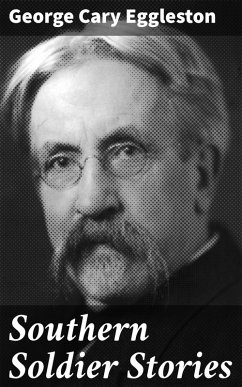
The 'Blackwood' Group (eBook, ePUB)

PAYBACK Punkte
0 °P sammeln!
In 'The 'Blackwood' Group,' George Douglas offers a compelling examination of a pivotal literary circle in 19th-century Edinburgh, known for its contributions to the genres of fiction and critique. Douglas employs a rigorous analytical style, interweaving biographical sketches with critical assessments, illuminating how the members of this group influenced contemporary and later literature. With a keen eye for detail, he explores the intersection of romanticism and realism, contextualizing the roles of the group's notable figures such as John Wilson and James Hogg within a vibrant cultural and...
In 'The 'Blackwood' Group,' George Douglas offers a compelling examination of a pivotal literary circle in 19th-century Edinburgh, known for its contributions to the genres of fiction and critique. Douglas employs a rigorous analytical style, interweaving biographical sketches with critical assessments, illuminating how the members of this group influenced contemporary and later literature. With a keen eye for detail, he explores the intersection of romanticism and realism, contextualizing the roles of the group's notable figures such as John Wilson and James Hogg within a vibrant cultural and intellectual milieu. George Douglas, a scholar well-versed in Scottish literary history, draws from his extensive research into the social and political undercurrents that inspired the 'Blackwood' Group. His deep interest in the dynamics of literary communities and their impact on public discourse offers valuable insights. Douglas's background in both literature and history provides him with a unique perspective, allowing him to synthesize various sources to present a rich narrative about this influential collective. This book is highly recommended for readers interested in the evolution of Scottish literature and the intricate relationships that shape literary movements. Douglas's thorough exploration not only enhances our understanding of the 'Blackwood' Group but also shines a light on the enduring power of collaborative creativity in literary history.
Dieser Download kann aus rechtlichen Gründen nur mit Rechnungsadresse in A, B, BG, CY, CZ, D, DK, EW, E, FIN, F, GR, H, IRL, I, LT, L, LR, M, NL, PL, P, R, S, SLO, SK ausgeliefert werden.













